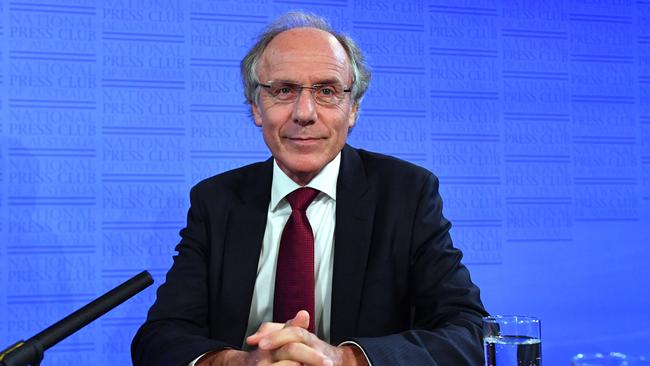AI on my device, not in the cloud
Nearly everything you do on your smartphone is stored, deconstructed and analysed by servers devoid of any morals.

Who said the following? "Computers make excellent and efficient servants, but I have no wish to serve under them".
Was it Alan Turing, the father of computer science and artificial intelligence? No.
Surely then it was author Isaac Asimov who devised the Three Laws of Robotics designed to prevent robots harming humans? No.
It was none other than Star Trek’s Mr Spock, the half-Vulcan, half-human Science Officer and second in command of the Starship Enterprise.
You may recall that the Enterprise’s mission was ably supported by phasers, tractor beams, tricorders, and an on-board computer – capable of answering all the Enterprise’s queries.
The crew of the Enterprise weren’t at all concerned with sharing information with the computer, and they certainly didn’t get bombarded with endless advertisements.
That was the magic of the Enterprise computer: all of its processing was localised.
And herein lies the technological gulf between those on board the Enterprise, in the future, and those of us residing on this planet, in the present.
When I use my iPhone, I say “Siri, call my wife, Elizabeth Finkel”. And Siri very happily replies “calling Elizabeth Finkel”.
And it works really well, unless of course I am in an underground car park. In that case, Siri goes silent before sheepishly saying “Uh oh, I’m having trouble connecting”.
What this tells me is that the speech processing is not being performed on my iPhone.
Instead, my instruction goes to a server – a gigantic computer in the United States – that processes my words and sends them back to my iPhone as digital instructions rather than the original audio.
Nearly everything you do on your smartphone is stored, deconstructed and analysed by servers devoid of any morals.
They are servers not servants, and, as such, they present an ethical dilemma.
I, of course, want the immense benefits that AI provides; but I am alarmed that in order to do so, my smart device relies on the AI in the cloud. From the cloud, companies can identify me, follow me around, send me advertisements, and potentially share my information with third-party organisations.
In this new age of Artificial Intelligence, our key challenge is to harness the power of science to enhance human lives without sanctioning practices that violate human dignity.
It is my hope, therefore, that we will have a two-pronged approach in guiding the development of AI and digital ethics in Australia: one short-term and one long-term.
In the short-term, with servers being the unavoidable foundation of today’s Al, we must always remember this basic truth: no matter how fast the pace of innovation, it must never surpass the primacy of human rights.
This belief is rooted in my own story.
My father was born in Bialystok in northeastern Poland.
Being Jewish, Dad’s family suffered Nazi persecution that, for the first time in history, was facilitated by data and technology.
Punch-cards with census information, and tabulating machines able to sort 25,000 cards per hour, were re-purposed by the Nazis to target individuals deemed undesirable by the regime.
Many of Dad’s relatives were systematically identified and executed for the crime of being alive.
When he arrived in Australia, however, Dad found that the strength of the Australian state rested on the strength of our democracy.
He found citizens free from fear, and the same technologies that had wrought such terrible crimes in Europe used here for the collective good.
And that promise has only grown over time.
As the holders of this legacy, we bear great responsibility to safeguard our time-honoured rights and values as we explore new frontiers of science and knowledge.
Embracing this challenge, the Australian Government has released a set of ‘AI Ethics Principles’ to help guide the responsible development and use of AI systems.
But these principles are only a starting point, laying the foundation for more progress and a more permanent solution.
In the long-term, I believe that the way forward for AI is more technology.
Just like the hugely powerful Starship Enterprise computer, I want my phone to take my complex questions, interpret them locally without ever seeking advice from a cloud-based server, and then anonymously reach out to the cloud to get the answers to what I need.
AI on my device, not in the cloud.
And please don’t tell me this ambition is ‘highly illogical’.
In fact, I know we have the capacity to ‘make it so’.
Last year, I attended a government summit called Techtonic hosted by Minister Karen Andrews.
It was there I first learned about Home Guardian, an Australian company with a very simple system that has the potential to revolutionise the aged care, disability and hospital sectors.
Using a world-first artificial intelligence device, Home Guardian uses sensors to monitor movement. It alerts carers or family members, via text message, if an unexplained fall occurs – all without being connected to the internet, without consulting an external server, without compromising privacy.
AI on my device, not in the cloud.
For AI’s future to be assured, it must be seen as an effective and safe instrument for individual empowerment, and not as an instrument vulnerable to exploitation.
Our rights, our freedoms, are not a given. They must be jealously protected and constantly renewed to meet the challenges of our time.
Good legislation, guidelines and ethical behaviour can help, but we can do more.
We can ‘boldly go where no one has gone before’ and put the power of the Starship Enterprise computer in our phones so that there is simply no need to risk our privacy or security.
Ensuring the tremendous possibilities of AI, and our tenets as a nation, ‘live long and prosper’.
This is an edited extract of a speech prepared for the launch of the Centre for Artificial Intelligence and Digital Ethics at the University of Melbourne.


